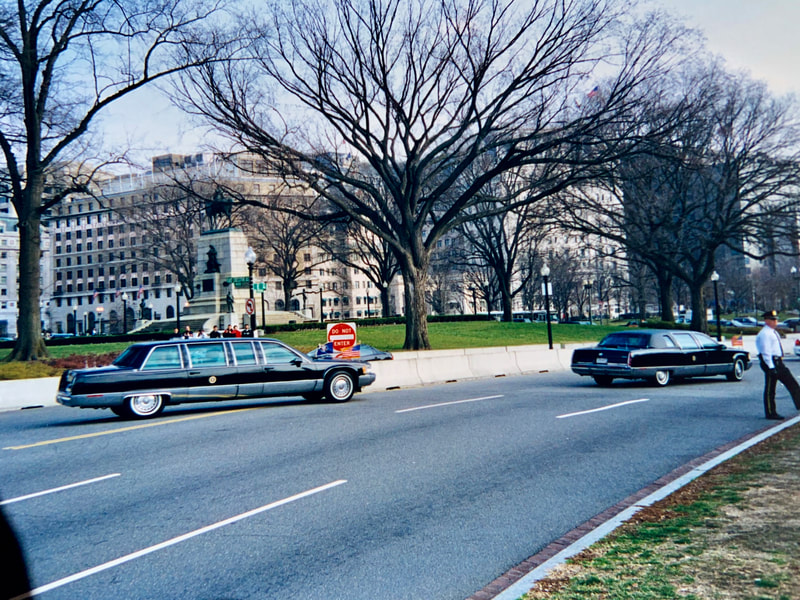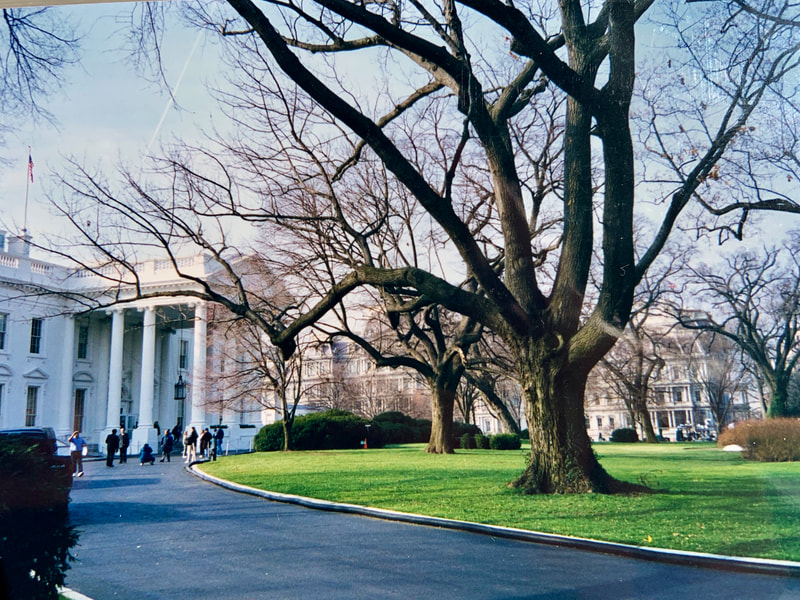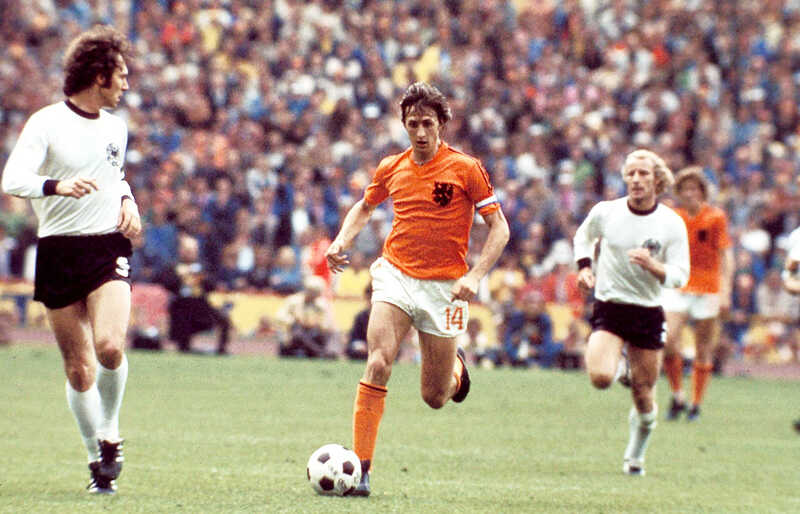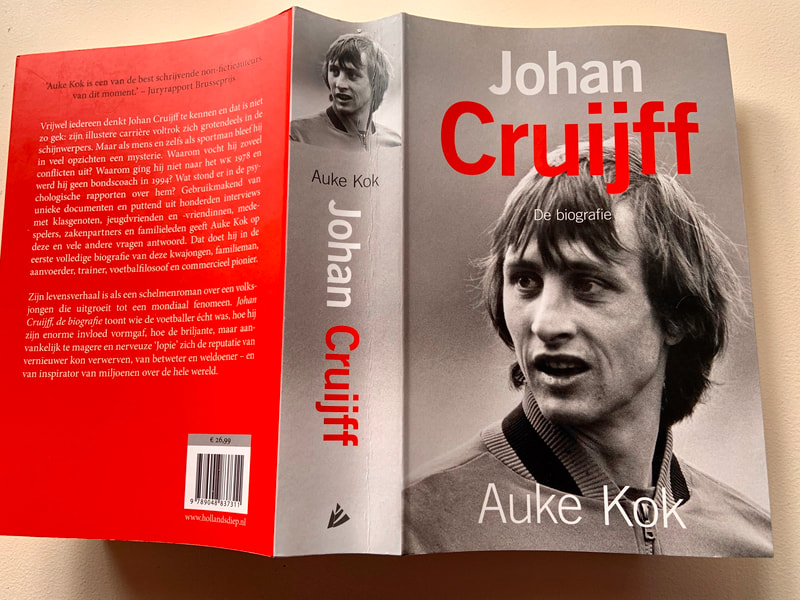|
Going through the current Corona-crisis we often hear references back to earlier disasters that came our way, and how they resulted in deep financial turmoil. I lived through two. The Asian currency crisis in 1997-98 put a first and serious dent in the boom times of the 1990s and in the process solved a few major problems like for instance traffic jams in Bangkok. As it happens I was there trying to restructure a billion dollars of debt for a large Thai conglomerate which had revenues in Thai Baht and debt in US dollars, lots of it. Management’s thinking had been that a timely phone call from the Finance Ministry would prevent a meltdown of the company. That call never came, markets unfortunately don’t work that way, and we were sweeping the floors while the taps were open, so to speak. I will never forget standing in front of a Bloomberg terminal seeing the crisis unfold in real-time as the Thai Baht plunged to unprecedented levels. At the same time my employer UBS had embarked on a merger with its nearest competitor, Swiss Bank Corporation, and for most of us on the UBS side the writing was on the wall. So, this crisis had all the right and painful ingredients: maximum financial chaos, job uncertainty and of course serious stock portfolio turbulence.
The financial crisis of 2008 began one morning during a meeting discussing a biotech deal when someone pointed out that while we were talking Lehman was collapsing. This ironically was the bank with whom we had partnered advising on the restructuring deals some 10 years earlier in South-East Asia, now they were gone. At this point in time I was a self-employed advisor and investor and probably in an even more vulnerable position than in 1998. The stock portfolio, now largely containing US and Canadian stocks came under some real pressure. At the same time, I was putting a financing together for a company that would successfully exit in 2011, something we did of course not know during that dark late summer of 2008. The 2020 Covid-19 wipe-out is comparable on many levels. Crises emerge because vital information is often suppressed on purpose and once the information seeps out a cascade of events ensures collapsing stock markets, failing businesses, job losses, government intervention and a realization that things are going to be very different going forward. I recall exactly the same things in 1998 and 2008 and it comes with the clear realization that none of this is your fault, it is a larger power that has shaped the turn of events and there really is nothing you can do to change the dynamics in your favour in the short-term. There is however one redeeming feature: you do not have to blame yourself. You can always hit yourself up if you are not doing all that well during the good times: what did I miss? Was I not aggressive enough? Everyone else seems to be doing quite well, so the one person to address deficiencies with is often yourself. But not during a crisis: you are enveloped by a flood and it is totally outside your control. And however disastrous, such an event can be quite healing. Why? The first thing is that you can now throw all assumptions and ideas of life and career before overboard, they have been reset for you by something else. And while trying to manage through the mess with the resources you have, you can start drawing the map of the next steps on a completely blank slate that someone else has wiped clean for you. Our idea to move to Canada was shaped in 1998, right in the middle of the currency crisis and merger activities. We could do anything we liked - in fact we had to in a way - as the foundations of certainty and clarity were collapsing around us. And while it may sound unpleasant it tends to unleash creative and out of the box thinking, simply because you have to. True, we were young and had no kids at that time, but the logic applies to any crisis and for anyone, the difficult decision to leave the past behind has been made for you and now you can chart new ways that will take you forward. As it is unfolding Covid-19 is manifesting itself as a deeper crisis, as of today we don’t know nearly enough about the virus and how it propagates and there is no shortcut to a vaccine soon. It has not only created a financial crisis deeper than ever, the deadly attribute to redefine how we go about life in a physical way will make some things even more complicated. And therein lies the key to getting out of this, the deeper the crisis, the higher the potential to reinvent ourselves. It has already been called a ‘re-set’ but you can also argue it is a ‘re-balance’ which is where I am leaning. We will continue on our paths, no moving continents again yet, but we are going to tweak the way we work, invest and engage with others. It is a great time to do just that.
0 Comments
So, it dawned on me when Kamala Harris exited the race. Why would a well-funded senator, relatively young, experienced and telegenic not make it? And lose to a significantly older crowd? And looking further back, why did Hillary Clinton not win in 2016? It got me thinking and I started to develop a theory around what you need, to be a successful contender for the presidency. Of course, any idiot can participate and run, but what is it that in the end pulls the lever for electoral success?
There are it seems three core qualities to become President of the United States. First you need a resume, a strong career ideally in politics that gives you the required experience to be the nation’s leader. But you also need to be able to tell people why you want that role, and for that you need to articulate a vision, a political mission or direction if you like. And thirdly, crucially as we will see, likeability: be a nice guy or girl who can ‘hang with the folks’ and show and call on endless reservoirs of empathy. In order to successfully contend the presidency, you will need at least two of these qualities, two and a bit is great, three is ideal of course. Less than two: forget it. Let’s try this thesis now. Ronald Reagan ticked all three boxes comfortably, an extremely likeable guy, a clear vision and mission-oriented plan and years in the actor’s union and as Governor of California he solidified his resume. He won two terms in Washington, the second one with a record majority. Bill Clinton? Again, he had done his homework governing Arkansas, was and is an extremely likeable folksy talker who connects easily with people. Maybe not enough of the vision part, but that is more than two boxes ticked already. Bill was a two-term president. George Bush Jr? Solid experience as governor, very likeable guy with the Texan drawl when needed, bit light on vision, but like Bill he clocked two terms. Obama? It has to be said, Barack was quite light on the resume part with only a few years as state legislator and senator, but he royally compensated that with an agenda for America’s future and being an all-around really nice honest decent funny family guy. The president that scores on less than two requirements is Donald Trump, in fact he manages one, barely. He managed the vision part by going after hot issues like immigration, less overseas wars and adjusting trade deals, ‘Make America Great Again’ of course presented a view of the future. But he is not even close to being likeable and his resume, even as a businessman, is quite arguably poor: not even a self-made man, something Americans like so much. Then why did he win? Trump was lucky to have an opponent who was also very thin on all three requirements. She build her resume on the basis of her marriage to Bill, had a very limited vision thing other than that it was her turn (which is why Joe Biden was relegated to the sidelines) and is by all accounts the furthest from being likeable, no warmth to speak of. The pairing of two incredibly weak contenders resulted in the outcome of 2016. It is fair to say that in that year the contest should have been 'Biden vs Romney' or 'Biden vs Rubio' or something like that. So, what about today? Joe Biden scores phenomenally on all three counts, I mean who would not want this lifetime politician over for a beer to chat about his views for America’s future? ‘Uncle Joe’ got ahead because Bernie Sanders was, while solid on experience and ideas, probably not all that likeable and his set of ideas where maybe a tad too divisive for the average Democrat. Elizabeth Warren is a bit harder to qualify, I think she is actually on par with Sanders and probably a bit more likeable, so it is odd that she lost, even in her home state. Maybe the experience or ‘being around long enough’ part is what did her in. So, let’s get back to Kamala and it is very plausible that her resume was too thin, but she really lost her mojo as a contender when her opponents dragged out the hard and cold prosecutor caricature: her likeability if it ever was there went straight down the drain. No, for likeability Pete Buttigieg was a much more viable candidate including the vision part, but mayor of South Bend, Indiana? Mwah, needs a bit more time building that resume. Feel free to run the three-part test past any of your past and future candidates and see if the ‘at least two, ideally three’ model works. For this November it seems all bets are off given the Covid-19 crisis, but under normal circumstances and according to this model, Joe Biden should be the dead-on favourite to put the White House back into the Democratic column. Photos: closest I came to seeing a president was visiting the White House in February 1999 doing the tourist tour. As I walked back all of a sudden there was lots of activity and I could just catch Bill’s motorcade heading across the bridge to Virginia for a speech. As I write our two daughters are dancing in the living room to the tunes of Don Omar, YG and Cardi B. We just had a long dinner at the table after an excellent pasta and shrimp dish cooked by our youngest daughter. And that after a day of hanging around the house where we realized none of us had left the Dorsman compound. The mandatory post-travel quarantine is long over for all of us, but somehow we miraculously enjoy the time together as the lockdown continues and no one feels a compelling need to go somewhere else. For sports, the daughters have turned the downstairs rec room into a yoga center, we have worked in the yard now that spring is here, and we barely have time to work our way through the recommended Netflix list. We basically finished The Crown and after two episodes dumped the grotesquely vulgar Tiger King. The mega visit to Costco last Friday obviated the need to go somewhere else and also made us realize that whatever the charms of downtown, the place has an eerie feeling now that everything has closed down.
So, we are happy where we are and as a family we have grown closer, with the oldest daughter back from university in The Netherlands while supporting our youngest one to virtually graduate from high school. It all seems to be working and indeed, we are able to do ‘real work’ in the mornings, but e-mail drops down quite a bit in the afternoons so we can go for a walk or do some work around the house. And we sleep lots, so it is almost like a family holiday without having to fork over a small fortune in airline tickets and Airbnb bookings. It all brings home an important point: are we living completely overscheduled and insane lives now that we are learning what a more balanced and home-based life looks like? Is this the re-set that everybody is talking about? Maybe it is and maybe we are getting some important lessons. As it stands, we have at least another six to eight weeks to see where it will take us. Will keep you posted.
A great biography sheds further light on one of the world's best football players
The debate as to who is the greatest football player will rage on forever, but the Dutch have long settled this question of course. Johan Cruijff (simplified Cruyff for international audiences) remains by far the best player ever and Dutch journalist Auke Kok penned a 640-page tome on the man who transformed not just the game, but also rose beyond it as an inspirational leader and individual who symbolized a new era of economic freedom and unprecedented individuality. The biography takes a few interesting themes and elaborates on these while following Cruyff’s career from childhood to his career start in the early 60s to his premature death of cancer in early 2016. The first theme is demonstrating the insane talent the man had as a football player, but noting that it would never have amounted to much had there not been a structure in which to display and use these talents. In the early 1960s, the years when Cruyff rose to prominence, Dutch soccer was an amateur sport, poorly organized and international results were practically non-existent. When Cruyff came on the scene at Amsterdam’s Ajax, the first attempts to professionalize the sport were only just underway and it was the emergence of Rinus Michels – who later was named FIFA’s coach of the 20th century – to lay the groundwork for disciplined football with plans, tactics and structure. It was in this framework Cruyff flourished as the increasingly well-oiled Ajax machine created the platform that enabled him to shine and lead in the delivery of three Champions League trophies as well as a World Cup for club teams. The Ajax model was replicated onto the Dutch national team which at the 1974 FIFA World Cup ended as runner-up, but with most of the world recognizing that the Cruyff-led side played the best football the world had ever seen. The duality of individual and team remained a constant throughout Cruyff’s career as player and coach, his brilliance could only shine in structured environments, but the clubs and teams on themselves would never have been able to shine without Cruyff’s brilliance. Kok’s book dives deep into the numerous conflicts and tensions that this dynamic generated, pointing to the successes it created, but also to the failures and missed opportunities. Cruyff’s deeply individualistic DNA just did not fit into any traditional structure. A similar dual dynamic underpinned Cruyff as person. Overly confident, intelligent, strong and at times arrogant, he was suffering from deep uncertainties and often used the weirdest rituals ahead of a game to quell the fears he suffered from. His uncertainty was most likely rooted in the early death of his father Manus and throughout life Cruyff tried to find a replacement for the father figure he missed since age twelve. But the uncertainty created by growing up in a family without a father manifested itself in a way that helped contribute to football’s rapid commercialization: Cruyff was almost paranoid about money and even as a well-established millionaire was suffering from deep concerns about his family’s security and well-being. This dynamic never played well in the Calvinist and sober Netherlands, many Dutch rolled their eyes over Cruyff’s hard and seemingly endless negotiations over contracts and commercial activities. However, if you read Kok’s book all of this was entirely logical in the context of Cruyff’s life and his awareness that he only had a short period of time to make money: Cruyff intuited economic uncertainty and was determined to be prepared for the worst. Despite his internal doubts, Cruyff always displayed extreme confidence and certainty in addition to an almost suicidal loathing of authority: many great career opportunities were destroyed in conflicts with referees, coaches and above all club directors. Any Cruyff fan – and I am certainly one – will attest that the deepest regret we all have is he never collected more than 48 caps for The Netherlands. A more pliant and collaborative Cruyff would have seen far more appearances in the Dutch national orange shirt and possibly more trophies and recognition. It seemed Cruyff accepted this outcome and in that provided evidence of his uncompromising personality. Financial certainty was there at his 50th when he stopped coaching altogether following a successful run at Barcelona. He focused on his charitable foundation and became a commentator on Dutch TV during which he appeared to elevate himself above everyone else with unfathomable analyses and remarks that became the staple of a number of books. “Football is simple, but playing simple football is very difficult” and “If I had wanted you to understand it, I would have explained it differently” became classics of Cruyff the philosopher. There was another dichotomy in his life: the consummate sportsman chain smoked throughout his career, something that no doubt contributed to cancer and his death at age sixty-eight. All his fans were devasted when his passing was announced and in particular the Dutch felt an incredible sense of loss. The pain was not just for a fallen sports icon, no, for a nation that had risen from the ravages of World War II, became an economic powerhouse and in the process had grown into a global vanguard of cool and hip individualism, it had lost the very symbol of that incredible rise. Born in 1947 and peaking in the 60s, 70s and 80s Cruyff had become the embodiment of that confident Dutch identity. The man himself understood exactly that he had already eclipsed earthly parameters by stating that “In some ways I am probably immortal”, a remark that opens the biography. And indeed Cruyff is immortal. His presence just in reading the book is weirdly palpable. His death ended one of most dynamic and creative eras in The Netherlands and in reading this excellent biography it lets you relive those days. At the same time, you learn from one of the few football players that transcended earthly life and became immortal. |
Archives
April 2020
Categories
All
|




 RSS Feed
RSS Feed